F L A U N T

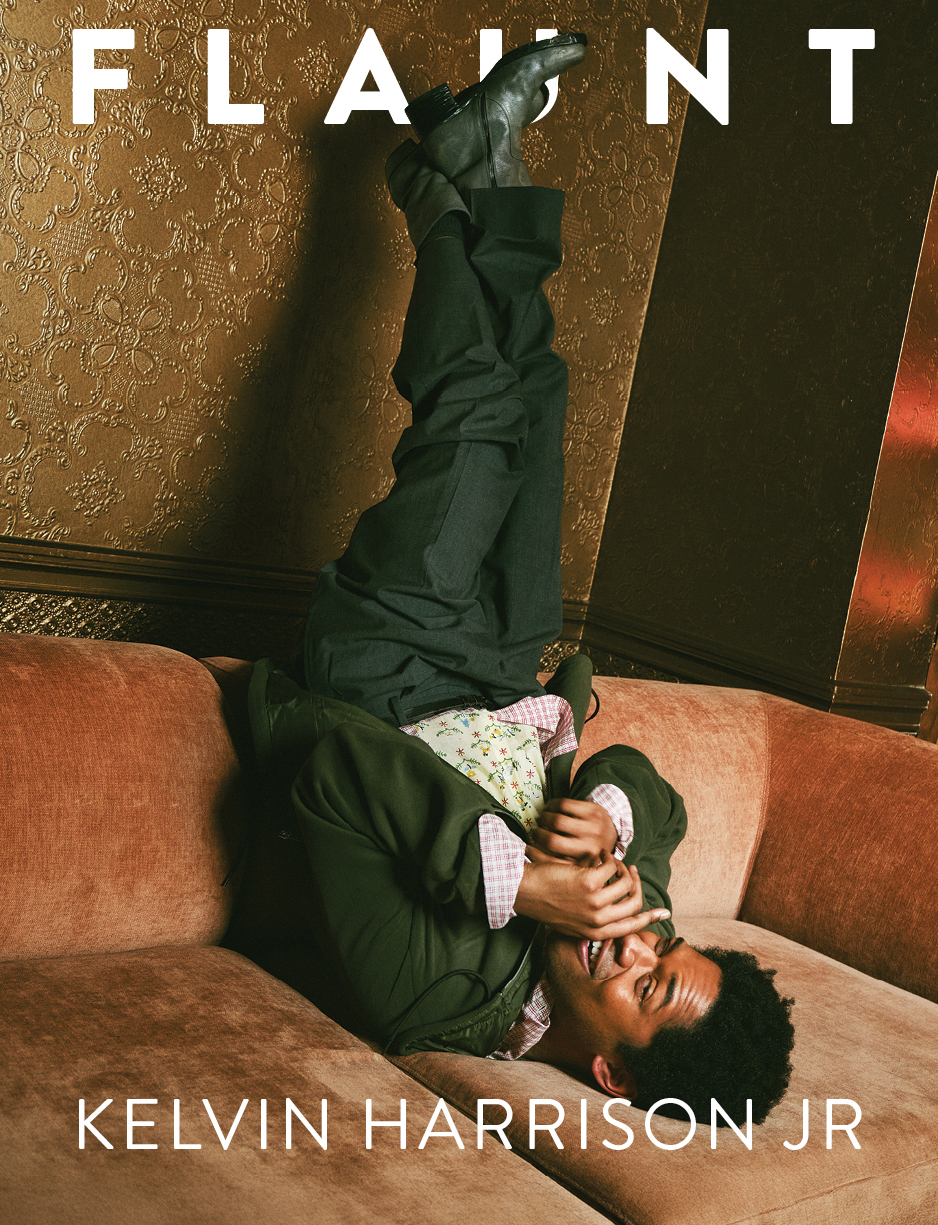
Kelvin Harrison Jr. thinks about the audience a lot. The 31-year-old actor, who has spent the better part of the last decade and a half quietly ascending the precarious ladder of Hollywood, has been in all manner of films—from microbudget indie fare like Nabil’s underseen Gully to IP-led box office smashes like last year’s Mufasa: The Lion King. He has garnered coveted award nominations from the likes of BAFTA, Gotham, and Film Independent, and even won a Screen Actors Guild Award (alongside his castmates) for his impressive ensemble work in The Trial of the Chicago 7. He is a self-admitted “focused professional” with all the makings of a promising star. But despite his rising profile, the actor knows that, without audience support, none of this really matters.
“I think the scariest part is the audience,” the actor confides in me on a chilly October evening. Fresh off an all-day photoshoot, the actor, admittedly exhausted, is sitting across from me inside a large room at the Ace Hotel in midtown Manhattan. He’s dressed casually in a gray peplum collar sweater and black sweats; a navy blue scarf, which he occasionally plays around with while considering some of his more complex answers, is artfully tied around his neck.

He’s considering one of those answers right now, as he recounts his experience making Samo Lives, the Jean-Michel Basquiat biopic he has just finished filming a few days ago. According to him, there is a unique pressure that comes from embodying a real-life individual, particularly one whose legacy some people may feel protective over. “The audience sometimes does not give you grace. They’re like, ‘You need to do the supernatural. You need to be the most excellent storyteller ever. You need to be the reincarnation of Denzel Washington,’” he says. “I used to internalize a lot of it. The people-pleasing part of me was like, ‘I really want everyone to be happy.’ But then, I was like, ‘Kelvin, you can’t! You literally can’t [please everyone].’ So now I just kind of go, ‘Hey, they might hate it. They might love it. They might want to say, We never want to see him work again. They might say, You know what? Give him an Oscar!’ But that’s the temperamental relationship you have with an audience. And I wouldn’t change it for the world.”
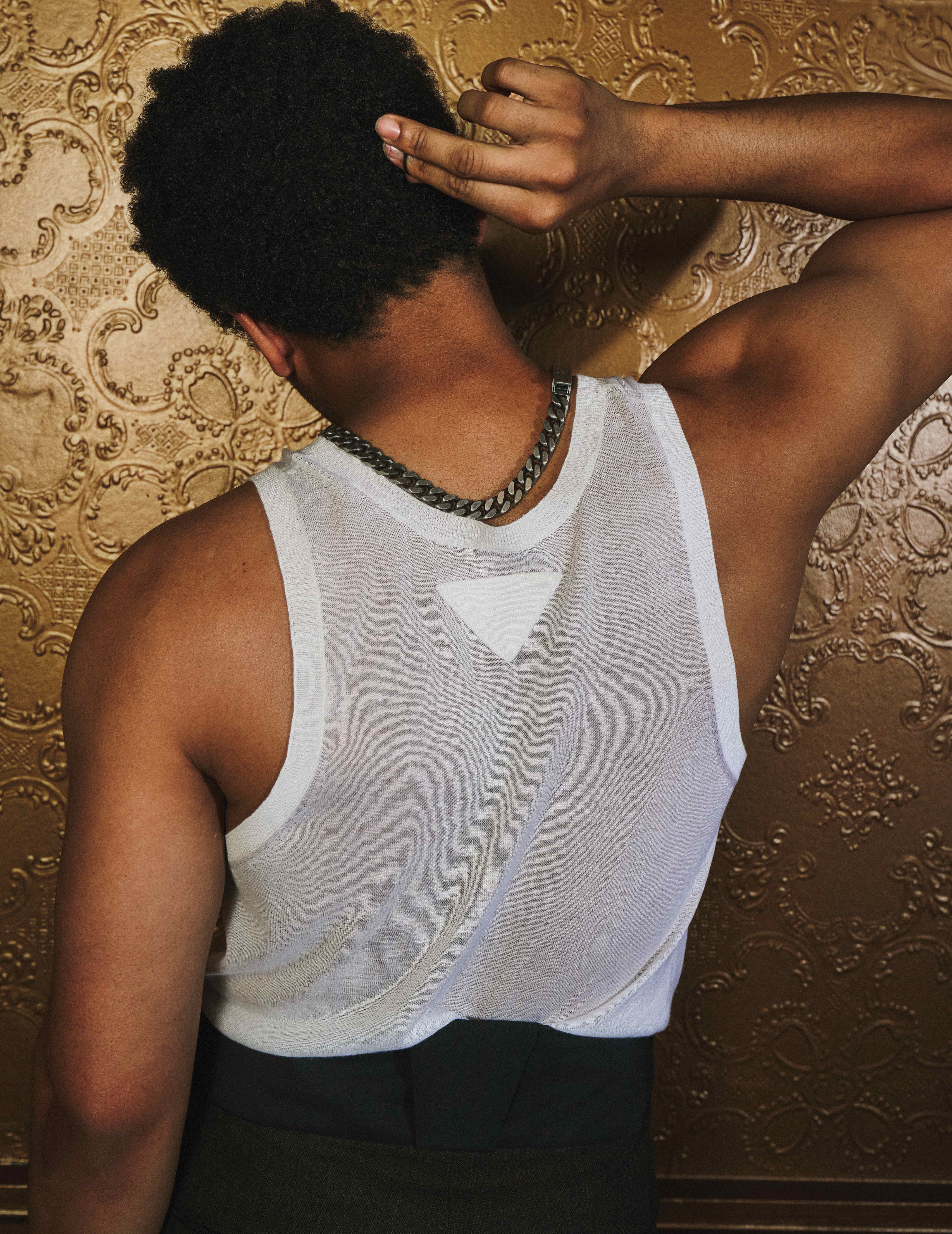
In Samo Lives, Harrison plays Basquiat, starting from age 17 (in the late 1970s, when the revered artist was making graffiti as part of the SAMO duo) and concluding with his untimely death at age 27. The actor, who also consulted on the script and turned down another offer to play the artist in a different project, has been attached to the film since 2019, when director Julius Onah first inquired about his interest. At the time, Harrison was gearing up for what was then the biggest moment of his career as he started doing press for Luce, a gripping high school thriller, also directed by Onah, that starred the then 24-year-old as a talented student-athlete whose contentious relationship with a teacher threatens his promising future. The pair had become quite close, so when Onah asked Harrison to reteam for Samo, it felt like a no-brainer.
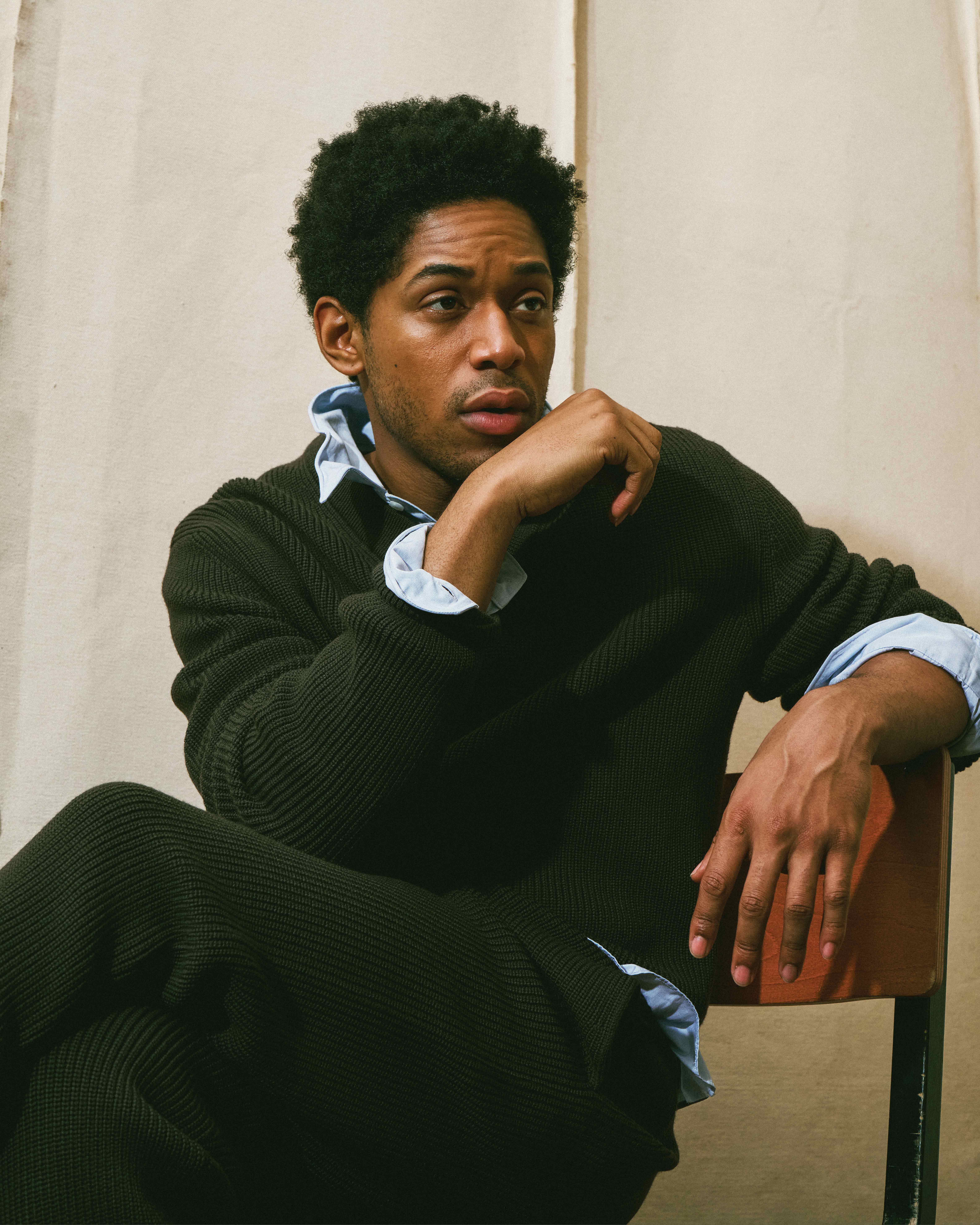
Of course, much has changed for Harrison in those ensuing six years. 2019 also saw the release of A24’s Waves, a diptych that starred Harrison as a volatile high school wrestler whose life is upended after a tragic death that occurs at the film’s thematic midpoint. Both Luce and Waves had modest box office returns, but Harrison’s dynamic, sometimes terrifying performances were deservedly showered in praise. (Luce even earned him an Independent Spirit nomination). And given both films’ mutual interest in thorny conversations around race, the actor was uplifted as a new face for a particular brand of politically-relevant indie cinema.

The impact on his career was immediate. Soon, Harrison was being cast as a romantic lead opposite Dakota Johnson in the Tracee Ellis Ross-fronted The High Note and signing on for the second season of HBO’s inescapable teen drama Euphoria. (It would have marked a reunion with show creator Sam Levinson, who directed Harrison in Assassination Nation). Unfortunately, the COVID-19 pandemic put a pin in that momentum. The High Note forwent its theatrical release and debuted on streaming, and as production schedules shifted, he was forced to pull out of Euphoria.
It was a weird time for the actor. “For the first time, I was stuck there by myself, sitting there contemplating all my choices,” he says of those months spent in isolation. But that time of introspection also allowed him to reckon with his new life, which he couldn’t deny was panning out in ways that once felt unfathomable. “Being an actor that can make enough money to pay their bills? To make a life out of being an actor? That didn’t make sense to me,” he tells me. “When it all started to unravel itself, I was like, ‘Wait, people think I’m good? I’m meeting people I looked up to? I’m getting asked to work with really cool people?’ I was just very confused.”
It’s interesting to hear him say this as an actor who, by that time, was at least five years deep into his career. I ask for clarification. “I’m not supposed to say this,” he responds, “but I’m still kind of a little shook. I have to sometimes convince myself to have an ego. Just like a football player, you’re not going to survive without a healthy ego. You have to think you’re the shit.” He admits to still, sometimes, suffering from crippling doubt. “When I’m sitting here by myself, I’m just kind of like, ‘I’m the biggest con artist that ever existed.’ I don’t know.” It ties back to his earlier comments about the audience. “That’s the other thing, too: an audience gets to determine,” he says. “This is not a very objective career. It’s very subjective.” At this note, he points a finger towards me, sitting on the couch, furiously jotting down notes in my notepad. “What you write helps whether or not people like me or not, you know what I’m saying?”
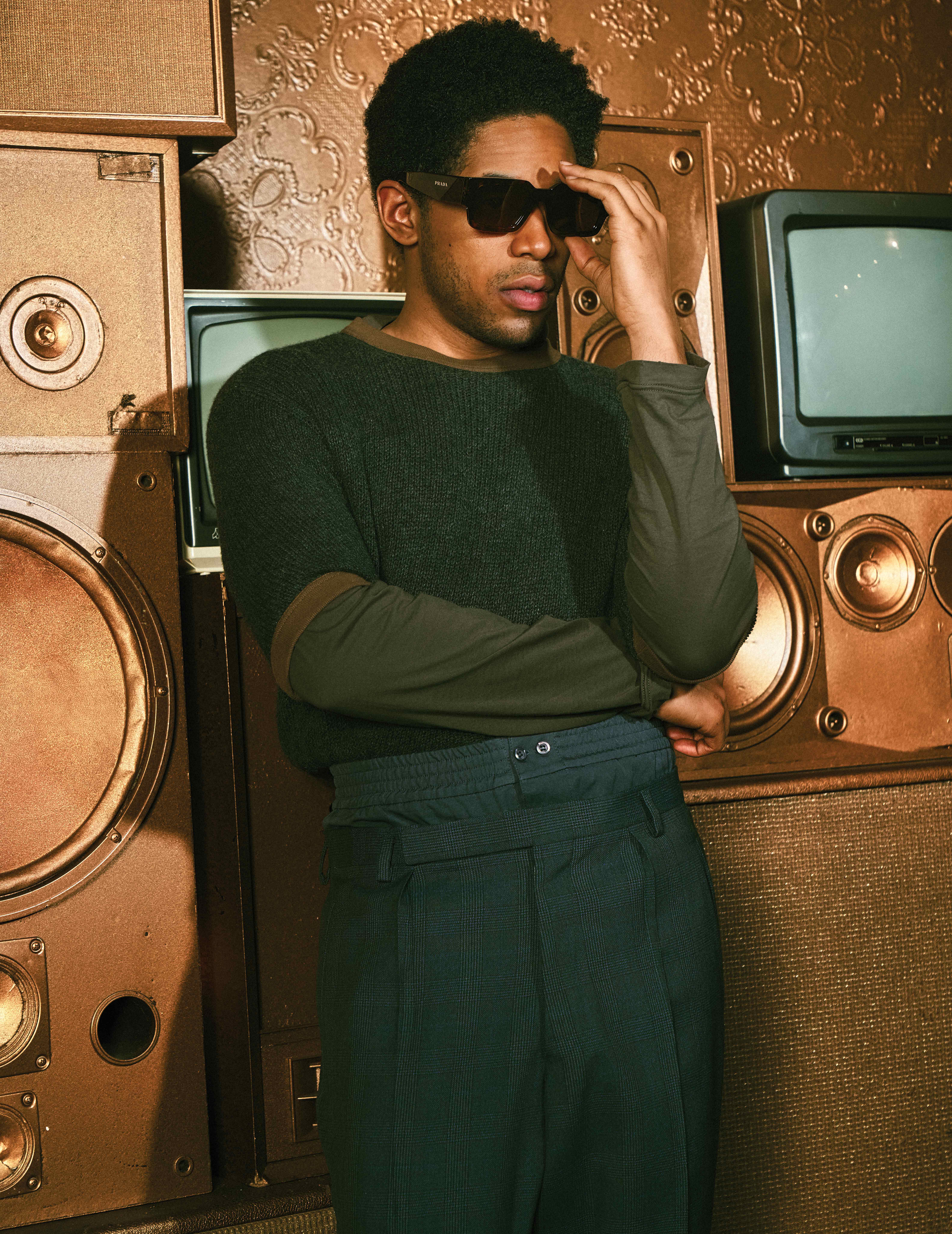
Harrison has many moments like this during our conversation. The actor is remarkably self-aware, like when he notices me waiting for him to expand on one of his answers and eventually adds, “A lot of actors have these elegant answers to all these things, but I think y’all know I’m the most raw. I’m all over the place.” He’s also cognizant of the relationship between interviewer and subject. On at least two occasions, he starts giggling to himself and promises to tell me what’s on his mind only after the interview has concluded, once my phone has stopped recording and he can speak freely off-the-record without worry of his words making it into print.
In many ways, this innate image-consciousness makes him a natural-born Hollywood star, which is quite ironic considering that Harrison didn’t always want to be an actor. Instead, while growing up in New Orleans, he wanted to follow in the footsteps of his parents and become a musician. “I wanted to be a pop star. I auditioned for American Idol twice and X-Factor once,” he recalls. Acting, on the other hand, “made zero sense” for him. “I was shy. I would cry all the time,” he admits. “I was one of those kids who never could speak. I still don’t like public speaking. I freak out every time someone asks me to do a speech. I literally want to shit my pants.” (Now, as an adult, he still feels similarly. “I’m not the social butterfly,” he’d go on to tell me later. “I have horrible social skills. I’m not the fun one. I’m the grandpa of the group.”)
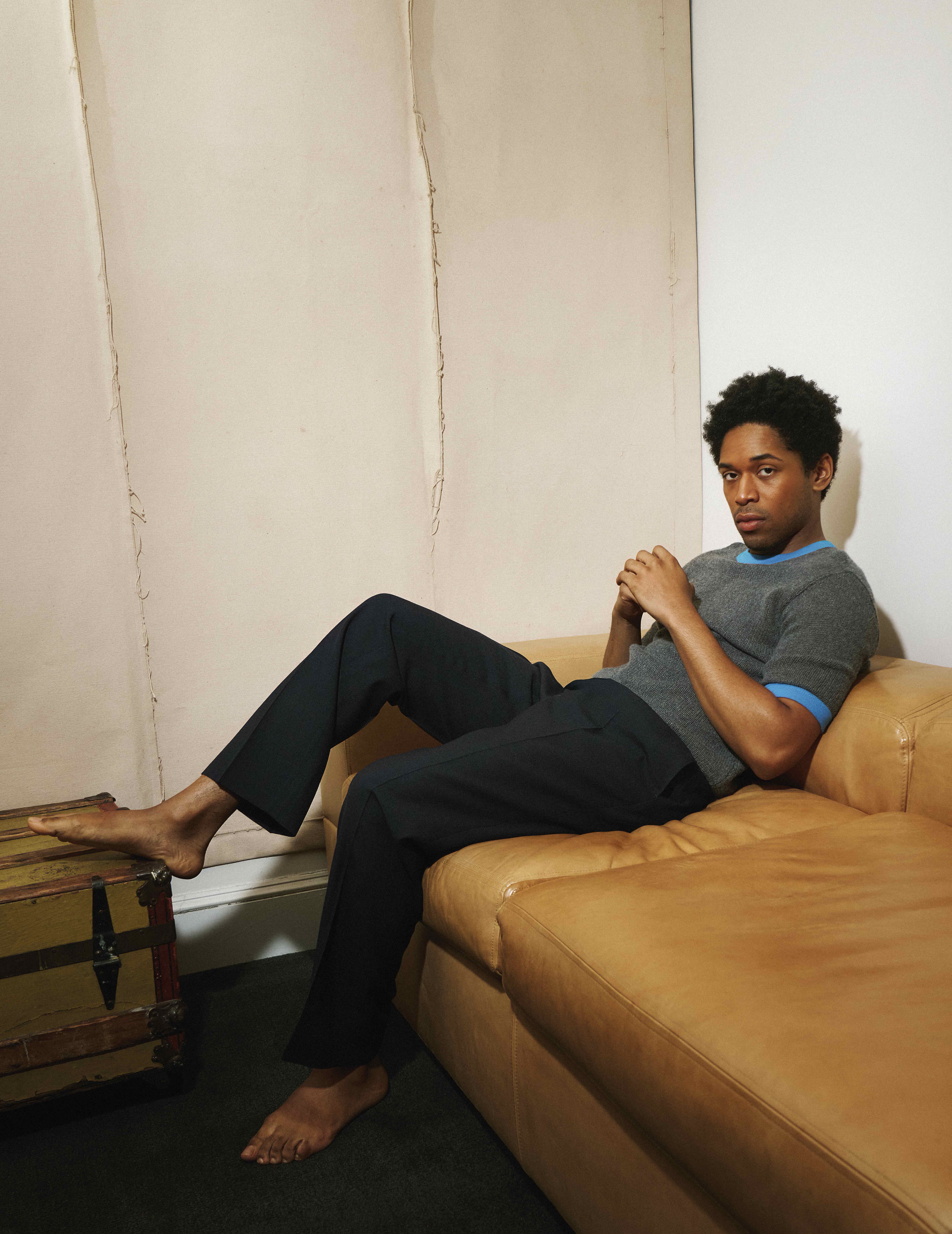
It wasn’t until the Golden Age of Tween TV that he started to reconsider. “I loved the Disney Channel,” he says, citing shows like The Suite Life of Zack & Cody, and That’s So Raven. He wanted to be in that world. “I loved those kids. I loved the fun that I thought they were having.”
Ironically enough, his career began on the polar opposite of the “fun” spectrum—with a small appearance in Steve McQueen’s 2013 Best Picture-winning 12 Years a Slave. He quickly shook off that shyness he previously struggled with. “No one cares if you’re shy. They’re just going to fire you,” he says. “When you’re in your feelings, in your head, it’s egotistical to be like, ‘Hmm…I’m scared.’ It’s just like, get over it! It’s not that deep. You got the job. Do the damn job!”
Harrison spent the next several years working his way further up the call sheet. It certainly helped that he proved particularly adept at finding specific niches for himself. In those early years, he seemed to jump from one race-based period piece to another, whether it was awards bait like 12 Years a Slave, The Birth of a Nation, and Mudbound or prestige TV series like Underground and Roots. More recently, he’s found great success playing real-life figures. In the past half-decade alone, Harrison has played revolutionary activist Fred Hampton (in The Trial of the Chicago 7), Grammy Award-winning blues musician B.B. King (in Elvis), Civil Rights leader Dr. Martin Luther King Jr. (in Genius: MLK/X), revered French-Caribbean violinist and composer Joseph Bologne (in Chevalier), and of course, now Jean-Michel Basquiat.
For what it’s worth, Harrison insists that he doesn’t have a preference for these types of roles; it’s more just how the cards have fallen. “We don’t get character roles [as] young Black guys,” he explains. “Because we live in a time where franchise IP is the only thing that matters, doing a biopic is technically IP. There’s a built-in fanbase, a built-in understanding audiences want to invest in.”

There is one quasi-real-life figure he played that he’s upset will never see the light of day, though. Harrison spent much of last year filming Golden, a Michel Gondry-directed musical based on Pharrell Williams’ childhood growing up in Virginia Beach. His lead character was loosely based on the super-producer, but the movie was unceremoniously scrapped during the editing process. The actor brings the film up, unprompted, when I remind him that we had spoken once before, in 2020, while he was doing press for The High Note. Back then, he was nervous about his vocal limitations. I’m curious whether he feels more confident now. “No,” he quickly retorts, “because the Pharrell movie didn’t come out!” He admits that it’s something of a sore spot. “Listen, we had a good little album planned for that. We were singing down in that movie.”
Not that he hasn’t had opportunities to flex his vocal chops. Last year, in fact, his voice became a social media sensation when “I Always Wanted a Brother,” a song from Barry Jenkins’ Mufasa: The Lion King, went viral on apps like TikTok. He never anticipated that level of online attention, but, then again, much about Mufasa came as a surprise. “I had been wanting to work with Barry for a long time,” Harrison says of the experience. “Now, did I think I was going to be doing it in a live-action cat movie? No.” He laughs. “But let’s not get it twisted. Lion King was one of my favorite movies growing up, so when I got that email, I…” He makes an animated gasping noise. “It was unreal. I couldn’t believe it. Once again, it was childhood dreams coming to pass.”
The film, which grossed over $720 million worldwide, was easily Harrison’s biggest box office success to date. But that success also came with increased scrutiny in ways he wasn’t exactly prepared for. “People were like, ‘Oh, you have a personality?’” he remembers, referencing the many junkets and red carpet interviews he did as part of the film’s continent-jumping press tour. “I didn’t know people didn’t know that. I didn’t know that people thought I was just brooding all the time.” Though he’d made a name for himself playing admittedly darker characters, comments like these made him self-conscious. “I thought I was doing really important work that was calling on certain issues and expanding the representation of who we [as Black people] are. I thought I was doing things that felt really meaningful. I didn’t know I was a symbol of sadness.”
Luckily, he wasn’t going through the process alone. He got extremely close with his British co-star, Aaron Pierre. “Lion King was great for my career in some ways, but I also think Lion King was good for my life,” he stresses. “At a time when I felt really lonely and really scared and misunderstood, I had Aaron all of a sudden, and I started to feel a lot less of that.”
Now, armed with that new perspective, Harrison is finding new levels of joy in his work. Right before production revved up on Samo Lives, the actor was in Budapest having the time of his life while filming Alpha Gang, a new sci-fi comedy by the Zellner brothers, alongside a stacked cast that includes Cate Blanchett, Chris Pine, and Dave Bautista. In it, he plays “an alien that’s in a biker gang,” a role he gladly welcomed after years grinding away in more serious projects.
And because he never seems to be off for more than a few weeks at a time, the actor is going straight from production on Samo Lives into production on The Hunger Games: Sunrise on the Reaping. (Afterwards, he has a similarly short break before launching into his next project). Thankfully, the actor seems excited about it. “Shit, I loved The Hunger Games. The Hunger Games was lit,” he lights up when our conversation switches over to it. He makes the now-familiar mockingjay whistle. “When they was doing that shit? Are you kidding me?”
“That was the only franchise I really was down for. I wasn’t on the vampire thing,” he continues, referring to Twilight. “But for some reason, The Hunger Games? The political commentary, the social commentary, the entertainment aspect of it all, the diversity in it? So many things about it made me feel like I was getting a grasp on understanding more about what the world looks like.” So while his Disney Channel dreams have gone unrealized, he can at least find similar fulfillment with this. “At one point, I was in New Orleans watching this on a movie screen, and this week, I’m headed to be on the set,” he beams. “That’s mindblowing, right?”
And yet, that’s not even the craziest part. Sunrise will find Harrison playing a younger version of Beetee Latier, an electronics whiz that was played in the original films by Jeffrey Wright. Given that Wright also played Basquiat in Julian Schnabel’s classic 1996 biopic about the artist, it’s clear that Harrison and Wright share some kind of cosmic connection.

It was for this reason that Harrison “begged” Wright to come aboard Samo Lives, which he agreed to do (in a still undisclosed role). “Magical” is how the actor describes the experience. “I mean, how often [can you work with] someone playing somebody that did it already?” he asks. He believes Wright’s presence alleviated some of the pressure he felt to nail his portrayal of Basquiat. The two developed an “unspoken dialogue” and Wright was able to help Harrison determine if he “was headed in the right direction” in certain scenes. “He’s the type of actor I aspire to be,” Harrison says. “Jeffrey is one of those people who knows how to break down a human being in such a way that you actually understand more about who they are.” He feels that he’s found a mentor for life. “Something about being in proximity to Jeffrey multiple times lets me know that, maybe, I’m okay, and maybe, one day, I’ll be as incredible as he is.”
All signs seem to be pointing that way. Harrison is working more consistently now than ever before. But like any self-respecting performer, he has an insatiable appetite for more. “I’m not going to sit here and say I’m satisfied,” he says near the end of our conversation, now getting increasingly restless. “I’m grateful, and I do not take [it for granted] that I’ve been very blessed in this business thus far. But I work very hard. I’m very thoughtful about my choices. But options are few.”
For instance: he’s thankful that he’s been able to transition from years of playing teenagers to now playing real adults, but still fears that the industry doesn’t see him as being truly grown. In his understanding, “You have to be sexualized in order to be grown in Hollywood.”
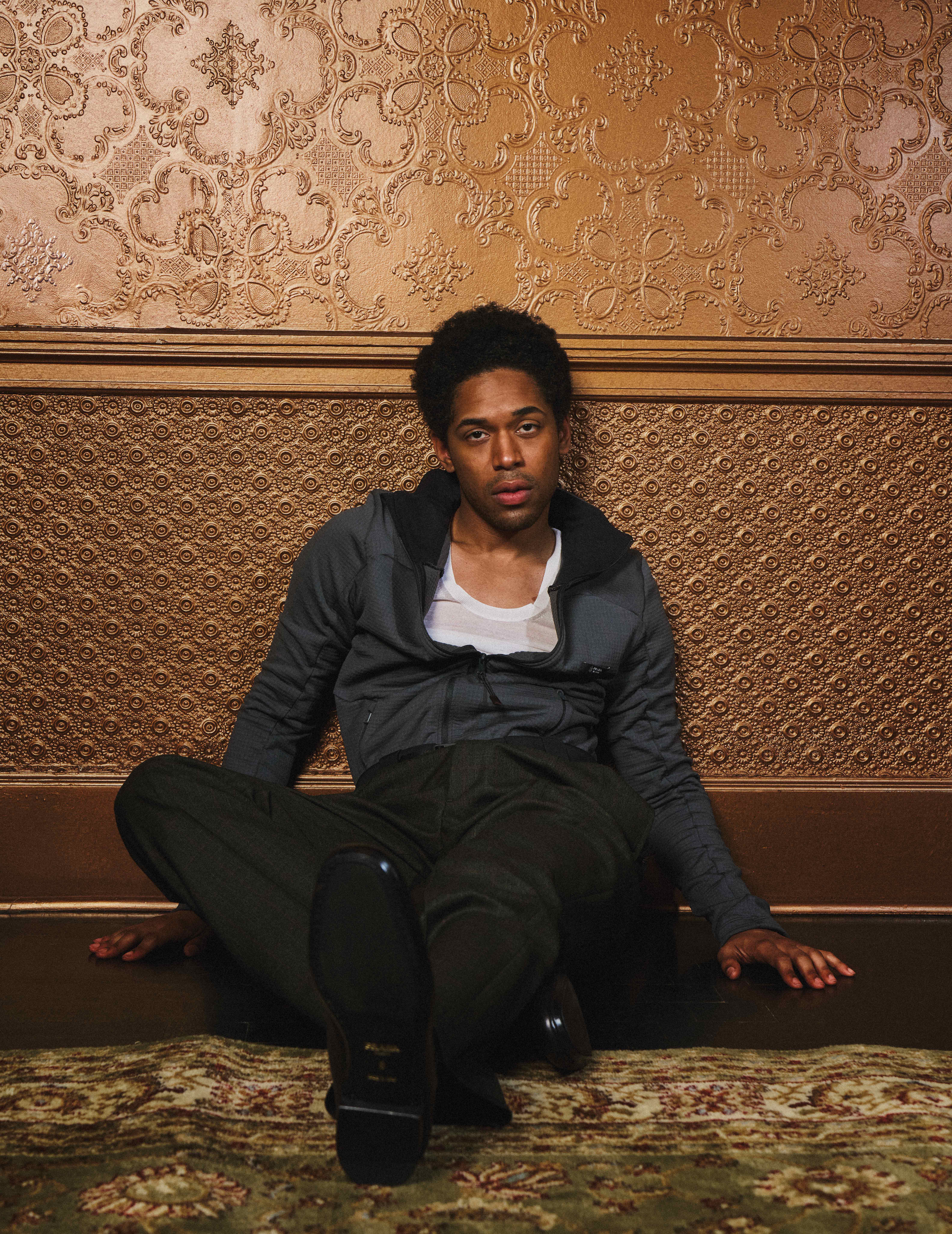
So does that mean he’s gunning for a sexy, R-rated romance next? Well, not exactly. Mainly because he doesn’t like to seek out specific genres. “You could do a dream role in a [specific] genre and it could be dogshit, and then, you’re like, ‘Well, this wasn’t what I dreamt it to be,’” he lets off. Rather, he’s more interested in working with specific people, namely auteurs like Lynne Ramsay, Wes Anderson, David Fincher, and Barry Jenkins again (this time, “on a non-cartoon”). He seems open to it all, so long as he’s working. After all, he has an audience to keep happy. He’ll keep doing what needs to be done—and he’ll always keep the audience in mind.
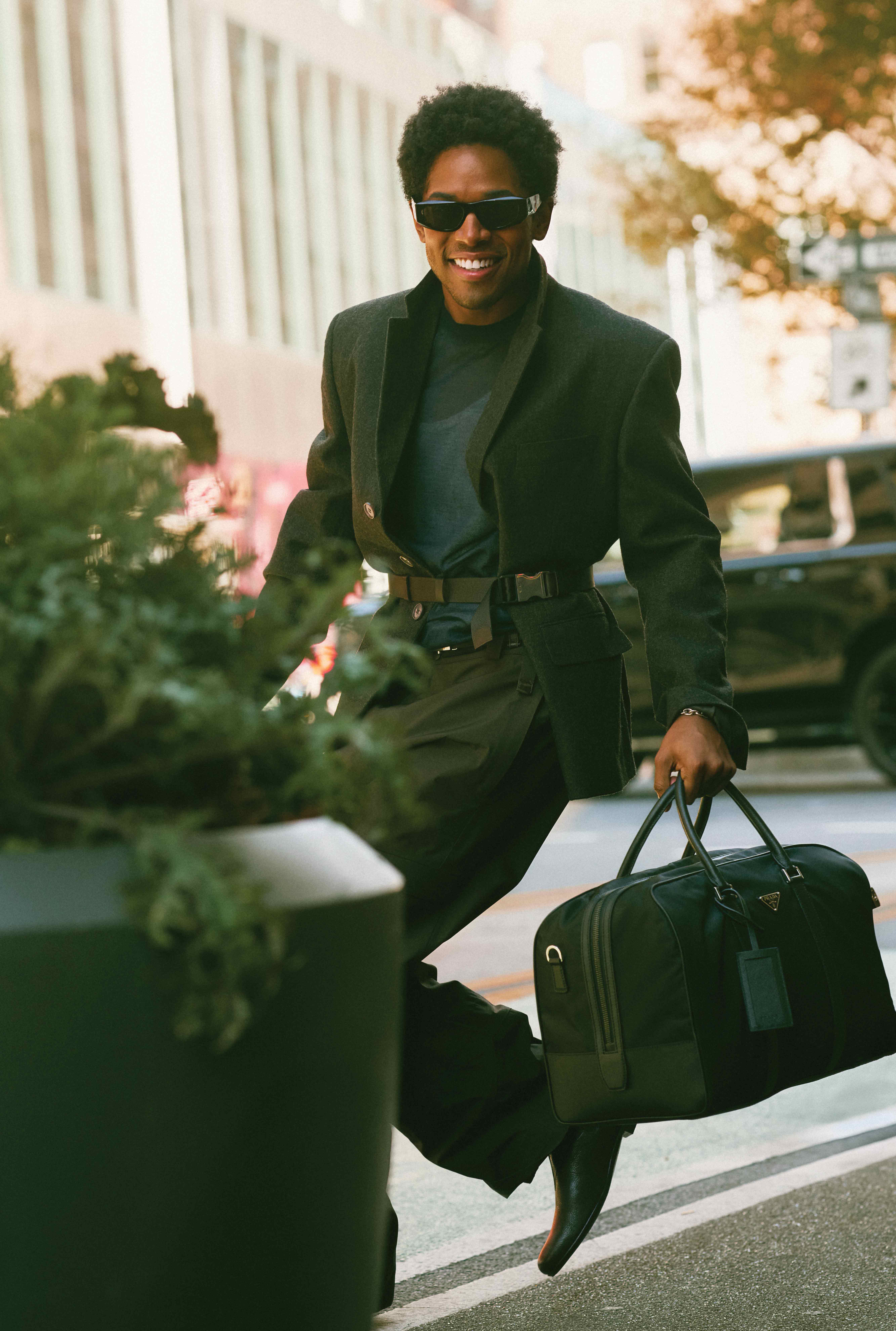
Photographed by Emily Soto at Print and Contact
Styled by Michael Fisher at The Wall Group
Written by Michael Cuby
Grooming: Renee Garnes at Opus Beauty
Hair: Jennifer Lord
Flaunt Film: Mynxii White
Location: Ace Hotel Manhattan